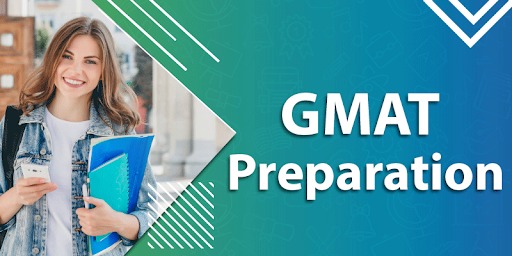Striving for a solid GMAT score in Gurgaon often feels like solving a logic puzzle under pressure. The exam lasts just 2 hours and 15 minutes and tests Quant, Verbal, and Data Insights equally. Each section of the test demands sharp analysis, fast thinking, and calm response. For many, especially those balancing jobs or travel, that is very challenging.
Meanwhile, India’s performance on GMAT numbers is growing. In 2023–24, 35,000 candidates from India took the GMAT, around 30 percent of global volume. That marks a 20 percent year-on-year jump, and India now accounts for roughly 23 percent of test-takers worldwide. Even more, in 2024, India had matched the US in sheer test-taking numbers, both near 27,000 each.
In this rising demand and a shorter, more focused GMAT format, students in cities like Gurgaon, where opportunities in business education and careers are rising, know the importance of a strong GMAT score. Yet preparing effectively is not easy. Time, pressure, and lack of resources often get in the way. This article highlights some of the common challenges faced during GMAT preparation Gurgaon and how online classes provide effective, practical solutions.
Need for a Structured Study Approach
Without a clear plan, students may concentrate too much on one section, say Quant, while ignoring Verbal or Data Insights. That creates an off-balance score. A smart path must cover all parts.
Online programs offer guided study plans. They pace practice across sections evenly. Dashboards track completed modules and upcoming targets. This keeps students on a steady, well-rounded path.
Managing Time Effectively During Preparation
In a tight 2-hour 15-minute test, losing time on one question hurts later ones. Some testers spend too long on verbal puzzles and rush Quant or Data Insights.
Online platforms mimic the real GMAT interface and time limits. They run timed quizzes and full-length mocks. Students learn how to pause, skip, return, skills they need in Pune or Gurgaon test centers.
Access to Experienced Mentorship and Feedback
Local GMAT classes in Gurgaon vary in quality. Not every student gets clear, focused feedback. Mistakes go unchecked and pile up.
Online courses give access to experts via live classes and chat support. Weak spots are flagged early. That means students improve faster, with fewer missteps.
Balancing Work Commitments, Commute, and Study
Traffic jams in Gurgaon are real. Working learners dread losing time in drive and rejoining a class might be tricky.
With GMAT online, the commute disappears. Students can log in from home or office. Lessons may even be rewatched later. That flexibility keeps prep consistent.
Building Confidence in the Data Insights Section
Data Insights is new to GMAT. It tests reading and analyzing graphs, tables, and multi-source passages. Many face a steep learning curve there.
Online tools offer simulated Data Insights problems with visual tools, timed responses, and instant feedback. That builds real skills, not just theory.
Adapting Study Plans to Individual Strengths and Weaknesses
Self-study can stall. People skip days. Motivation drops, especially when results don’t show fast enough.
Online platforms offer trackers, reminders, peer forums, and progress updates. Seeing steady gains feels good. A daily nudge can keep you going.
Adapting Study Plans to Individual Strengths and Weaknesses
In classroom setups, everyone gets the same lessons. That may waste time on strengths and gloss over weak points.
Personalized online programs use analytics to spot weak areas. They serve more Quant if that’s your drag. Or more Verbal if that’s lagging. This sharp focus saves time and boosts scores.
Maximizing the Value of Full-Length Mock Tests
Physical centers may offer 5–10 mocks of outdated formats. That leaves students under-prepared for the current test layout.
With GMAT online, students often access dozens of updated mocks. Results are broken down by speed, section, question type. You see exactly where to tweak your pace or method.
Maximizing the Value of Full-Length Mock Tests
Nothing adds stress like skulking towards a test center or facing unknown question styles. Familiarity helps.
Online prep lets students use the exact test interface repeatedly. That steady exposure builds comfort. On exam day, they feel prepared and grounded.
Role of Online Classes in Strengthening GMAT Preparation
Let’s picture a typical student: working, juggling home and long traffic. With GMAT online, she studies Quant modules after dinner. She watches a Verbal lesson the next morning. Analytics show she fumbles with Data Insights, so the platform gives extra drills on graphs. Her mock score rises from 600 to 650 in weeks.
Key Statistics Highlighting GMAT Trends
- Growth in GMAT Registration: India added over 4,500 more GMAT test-takers in 2024, up 20.1% in just one year.
- Global Shift: India’s share of global GMAT volume has climbed to 23%, matching the US by 2024.
- High Average Scores: Indian test-takers score an average of 618, slightly above global average and near top among countries.
Yet with so many competing, better prep tools like online classes can make a real difference.
Conclusion
GMAT prep in Gurgaon brings real hurdles: limited planning, commute burdens, gaps in feedback, and unorganized studies. But GMAT classes in Gurgaon need not be limited to local quality. GMAT online steps in with structured timelines, skill focus, adaptive tools, mocks, and mental prep.
It is worth noting that platforms like Jamboree have been a reliable name in GMAT coaching over the years. Known for combining experienced faculty with structured online resources, Jamboree ensures that Gurgaon and beyond GMAT aspirants can effectively prepare for exams without obstacles faced in traditional classes. Their online support, tailored study plans, and extensive GMAT practice material reflect the very solutions discussed above.
Right now, India is a GMAT powerhouse, with over 35,000 test-takers from India in 2023–24, 20% growth, and average score of 618. With strong online support, Gurgaon aspirants can tap that momentum. By using online tools wisely, students can turn common challenges into confident readiness, and hit scores that open global doors.

